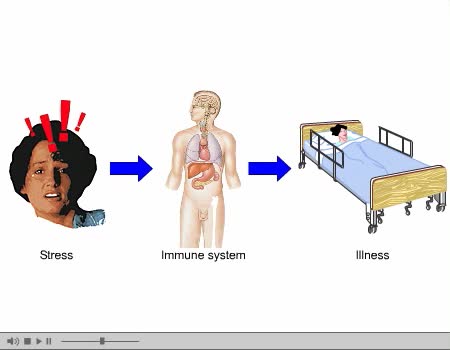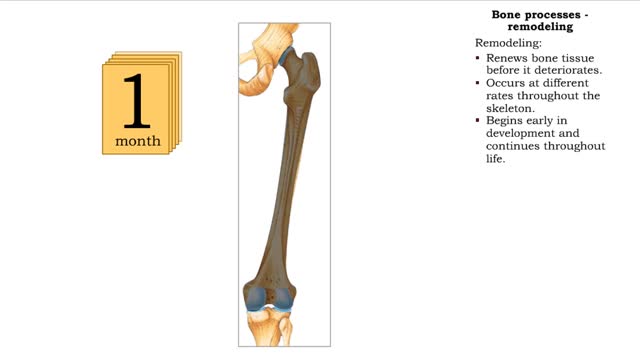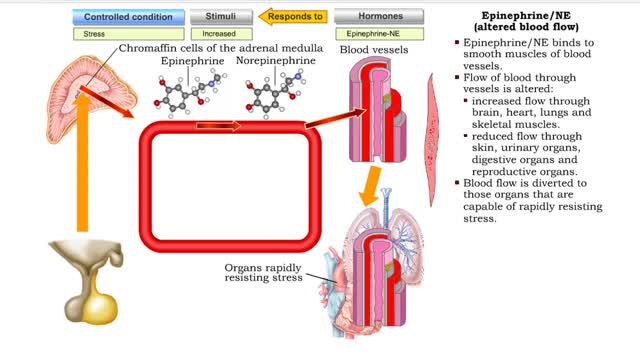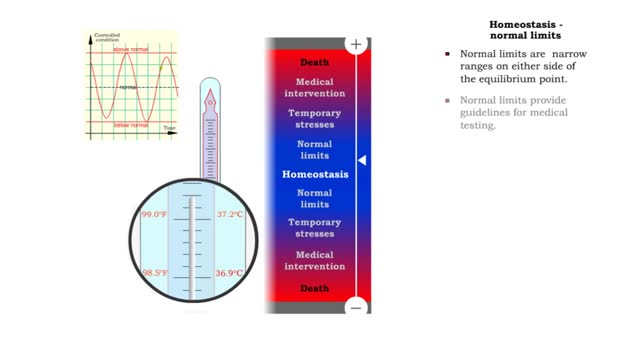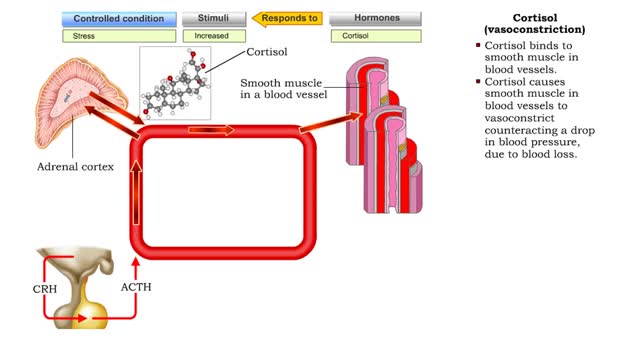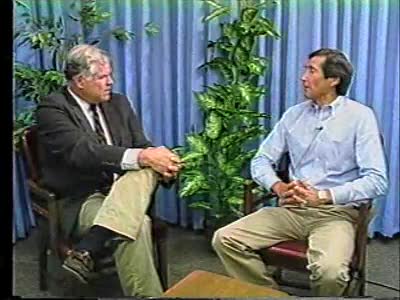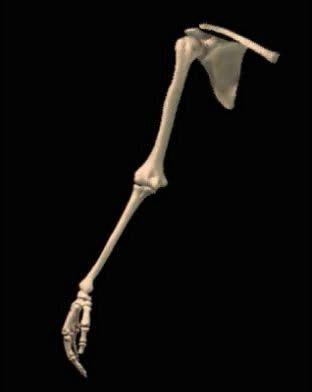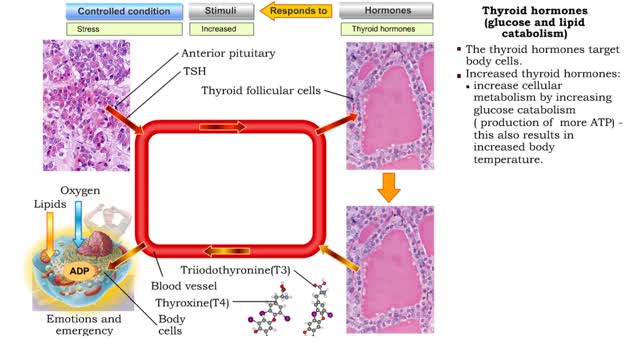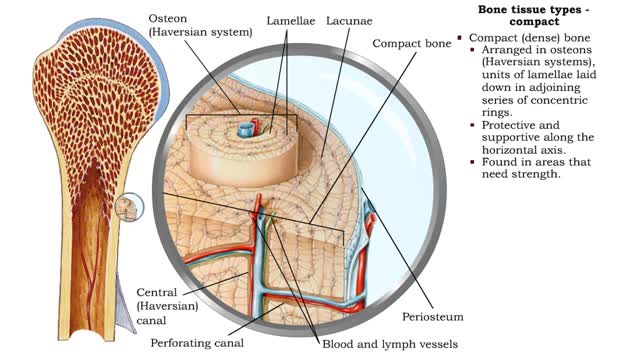Search Results
Results for: 'Stress'
Stress and Immune System Animation
By: Administrator, Views: 14832
How stress and the immune system are linked. Immune response declines with age, limiting body's ability to identify and fight foreign substances. Loss of thymus cortex leads to reduced production of T lymphocytes, including T cells, NK cells, B lymphocytes. Frequency and severity of infectio...
Bone processes - resorption and deposition, remodeling and response to stress in adult bones
By: HWC, Views: 11914
• The process of remodeling bone tissues involves bone cells resorbing or depositing minerals into bone tissue. • During resorption, bone cells break down bone tissue and release calcium and other minerals for use by other cells in the body. • Bone cells also rebuild bone tissue by depo...
Epinephrine/NE (heart rate, altered blood flow, glycogenolysis & bronchodilation)
By: HWC, Views: 11528
• Stressors trigger increased sympathetic stimulation from the hypothalamus to the chromaffin cells of the adrenal medulla. • This causes the immediate release of epinephrine and norepinephrine (NE). • Epinephrine/NE binds to the cardiac muscles of the heart. • Cardiac muscle cells ...
Homeostasis (range of body conditions, normal limits, mild stresses & severe stresses)
By: HWC, Views: 11475
Homeostasis: • Provides relative stability of the internal environment. • Results from constant adjustments. • Regulated by regulatory processes. • Requires system interplay. • Normal limits. • Temporary stresses. • Disruptions requiring medical intervention. • D...
Cortisol (protein catabolism, gluconeogenesis, vasoconstriction & anti-inflammation)
By: HWC, Views: 11363
• Stressors stimulate production of hypothalamic releasing hormones, corticotropin releasing hormone, hormone (CRH) and adrenocorticotropic hormone (ACTH) stimulate. • These hormones promote increased production of 1 cortisol from the zona fasciculata cells of the adrenal cortex. • Cort...
Interview with Person who has Panic Attacks
By: Administrator, Views: 14758
Panic attacks are sudden periods of intense fear that may include palpitations, sweating, shaking, shortness of breath, numbness, or a feeling that something bad is going to happen. The maximum degree of symptoms occurs within minutes. Typically they last for about 30 minutes but the duration can...
By: Administrator, Views: 585
The elbow pronation test is performed by placing a hand on the elbow, flexing the carpus to 90 degrees, and rotating the toes out (thus inwardly rotating the antebrachium), which places stress on the medial compartment of the elbow. Pronation – Lying prone (face downward); also turning the p...
hGH, Thyroid hormones & Aldosterone
By: HWC, Views: 11803
Glycogenolysis and lipolysis • Stressors stimulate production of a hypothalamic releasing hormone (GHRH). • The releasing hormone stimulates somatotroph cells of anterior pituitary to secrete human growth hormone. • Human growth hormone targets liver cells and fat cells. hGH (glycog...
Bone tissue types - compact and spongy
By: HWC, Views: 11689
Bone tissue types • There are two types of bone tissue: compact and spongy. • All the bones of the skeleton have both kinds of bone tissue. • Compact (dense) bone • Arranged in osteons (Haversian systems), units of lamellae laid down in adjoining series of concentric rings. • P...
Advertisement



